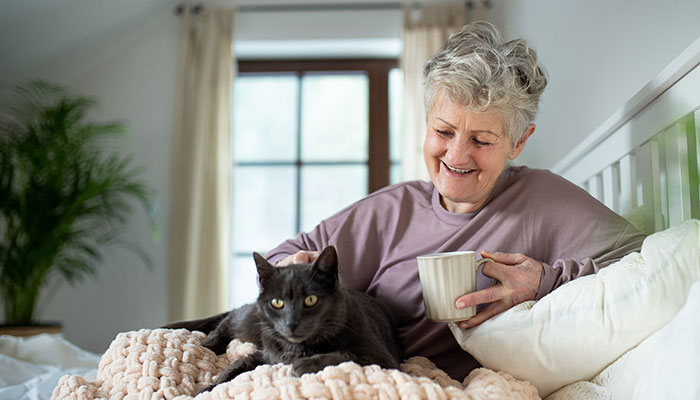
With resources, access to community programs, and proper coordination of care, we can create a system that supports your relative to age well and allows them to stay where they are most comfortable: In their own home.
We begin with a thorough Assessment and Care Plan.
- Physical assessment. Are there balance issues, medical conditions, or other health issues that pose a hazard to aging in place? What is working well for them? Vision? Strength? Stamina? Good nutrition?
- Cognitive assessment. How is their thinking? Do they have memory problems? Cognitive impairment? What is still working well? Are there protections that need to be in place to prevent fires from a stove being left on? Phone guards to protect against scammers? Is there a concern about wandering? Are they able to use technology to stay socially connected?
- Sensory assessment. How is your relative’s vision? Are there home modifications we can make to improve their ability to safely get around despite vision loss? What about hearing impairment? Hearing is the foundation of our social relationships. Without good hearing, older adults tend to withdraw, become isolated, and often depressed. Let’s address that!
- Functional assessment. How are they doing with daily tasks of personal care (bathing, dressing, grooming)? What about other skills, such as driving or managing their finances? How can we emphasize their strengths for dignity and independence while providing necessary supports for safety?
Home Safety Assessment
In addition to looking at the abilities of the older adult, we also look at the home environment. How does it support aging in place? Are there hazards that need to be addressed for fall prevention? Also, socially: Who is currently helping at home? Is that a sustainable situation or do alternatives need to be considered?
Based on the assessments, the following changes are examples of what might be included in a care plan:
- Support services. Perhaps they just need mild assistance, such as someone present when they take a shower. Or maybe more extensive support is needed, such as cooking, laundry, driving. Let us connect you with the best home care assistance in Worcester and Middlesex counties.
- Adaptive equipment. Home safety may be as simple as installing grab bars in the shower or improved lighting in the hall. We are networked with bonded and licensed contractors who are well versed in the needs of older adults.
- Home modification. From the use of high-contrast colors to make the home safer for people with low vision, to remodeling to get a bathroom, bedroom, and kitchen all on the same floor, we can advise regarding necessary changes.
Contact us for an Aging In Place consultation: 978-660-7835.
Whether you are worried now about an elderly parent or you are an older adult yourself who is wanting to proactively address costs and make plans so you can stay in your home, let our years of experience guide you to make wise and cost-effective decisions.

